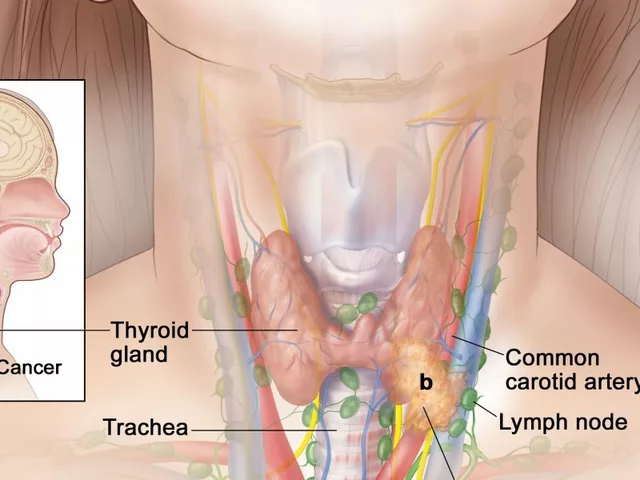Understanding Amiodarone and Its Uses
Amiodarone is a powerful medication, often used to treat life-threatening heart rhythm problems, also known as arrhythmias. It is a type of antiarrhythmic medication that restores normal heart rhythm and maintains a regular, steady heartbeat. While it can be a lifesaver for individuals with certain heart conditions, it's important to note that amiodarone is not without its potential side effects. This powerful medication can affect various organs in the body, including the liver. Understanding this relationship is crucial, particularly for those taking the drug over an extended period.
How Amiodarone Interacts with the Liver
Amiodarone has a unique chemical makeup that allows it to be stored in various body tissues, including the liver. This drug has a long half-life and can remain in the liver for weeks or even months after cessation of therapy. The liver metabolizes amiodarone, and this process can occasionally lead to liver cell injury and subsequent liver toxicity. It's important to note that although liver toxicity is a potential side effect, it doesn't occur in all patients using the drug.
Identifying Amiodarone-Induced Liver Toxicity
Amiodarone-induced liver toxicity can manifest in several ways. Symptoms range from asymptomatic elevation of liver enzymes to severe liver injury, including cirrhosis and even acute liver failure. It's essential for anyone taking amiodarone to be aware of the potential signs of liver toxicity, which may include nausea, vomiting, right upper abdominal pain, fatigue, loss of appetite, and jaundice (yellowing of the skin and eyes).
Measuring the Risk of Liver Toxicity
The risk of developing amiodarone-induced liver toxicity varies among individuals. Factors that may influence this risk include the dosage taken, the duration of therapy, and an individual's overall health status and liver function prior to starting the medication. Regular monitoring of liver function tests is recommended for individuals on long-term amiodarone therapy to detect any signs of liver injury early.
Managing and Treating Amiodarone-Induced Liver Toxicity
Treatment for amiodarone-induced liver toxicity primarily involves discontinuing the drug or reducing the dosage. However, due to the long half-life of amiodarone, symptoms may persist for weeks to months after discontinuation. In severe cases, liver transplantation may be required. It's crucial to work closely with your healthcare provider to manage this potential side effect and to consider alternative therapies if appropriate.
Preventing Liver Toxicity when Using Amiodarone
Preventing liver toxicity involves regular monitoring of liver function while on amiodarone. This allows for early detection of potential problems and timely intervention. It's also important to maintain a healthy lifestyle, including a balanced diet and regular exercise, to support overall liver health. Discuss any concerns or potential side effects with your healthcare provider to ensure you're using this medication safely.
Understanding the Balance: The Benefits and Risks of Amiodarone
While amiodarone can be an effective treatment for life-threatening arrhythmias, its potential impact on the liver cannot be overlooked. The key lies in balancing the benefits of the drug in controlling heart rhythm with the potential risks. This involves careful patient selection, regular monitoring, and a good patient-doctor relationship. Remember, understanding your medications and their potential side effects is an integral part of managing your health.



Jhoan Farrell
27 June / 2023Hey folks 😊, just wanted to say that living with amiodarone can be a roller‑coaster 🎢. The liver side‑effects are scary, but regular check‑ups really help catch problems early. If you ever feel weird stomach pain or yellow skin, give your doc a call ASAP. Hang in there, you’re not alone! 🌟